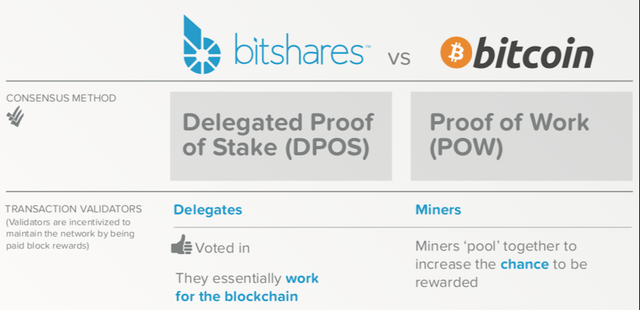What is Delegated Proof-of-Stake?
A fundamental characteristic of any distributed ledger protocol, including blockchain, is how the network confirms valid transactions and reaches consensus on a mutual state. Most are familiar with Bitcoin, but some may not realize that the consensus mechanism used in BTC, proof-of-work, is not the only possible way to reach consensus.
Another method is Delegated Proof-of-Stake, or DPoS. This method allows for a more efficient and equitable means of achieving consensus.
You can think of Bitcoin miners as all striving to be the first in a competition to create and fasten new blocks to the chain. In Bitshares every holder of BTS coins votes for who they want to create the blocks. The top 23 vote recipients rotate producing blocks every three seconds. Those 23 “witnesses” (determined by the current delegated stakeholder power) govern the state of the network and are compensated for their service. This model is based on game theory. If the delegates are rational utility maximizers they will continue to act in good faith otherwise they will lose their votes and thus suffer economic loss.
Proof-of-Stake represents a big change from Proof-of-Work which has garnered a lot of negative publicity for its anonymous nature and power-hungry structure. You’ve probably heard that Bitcoin mining consumes as much energy as a small country. Well Bitshares could power many times more transactions than Bitcoin and consume less energy than an average city.
Thanks for reading and I look forward to hearing from you. That do you think of PoW vs DPoS?
Source Graphic - https://bitshares.org/media/2015_bitshares_infographic_en.pdf


I think both have their utility, it depends on the use case.
Do you mean that PoW is more secure?
Personally, I think POW is more robust than POS even if it spends a huge amount of electricity.